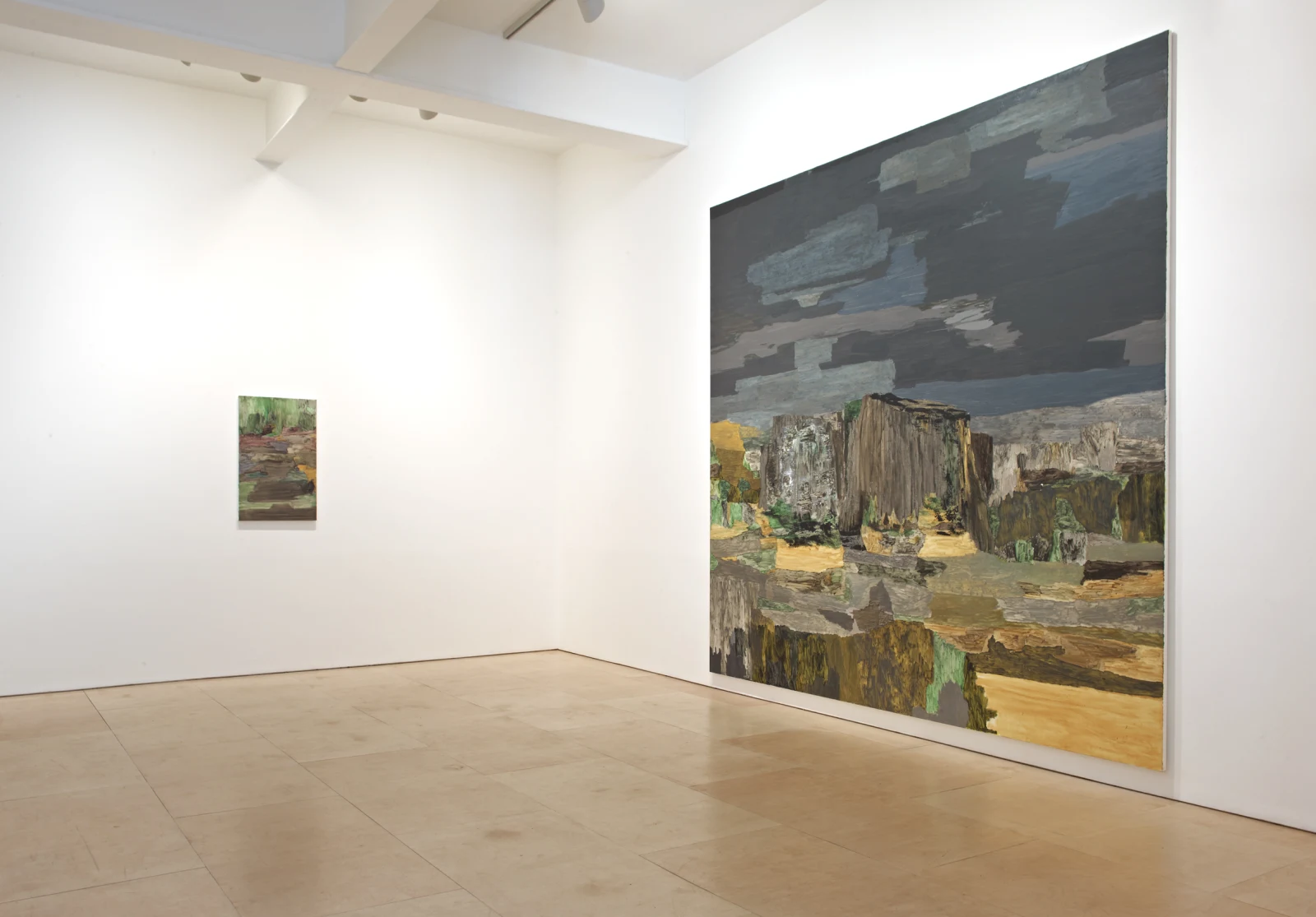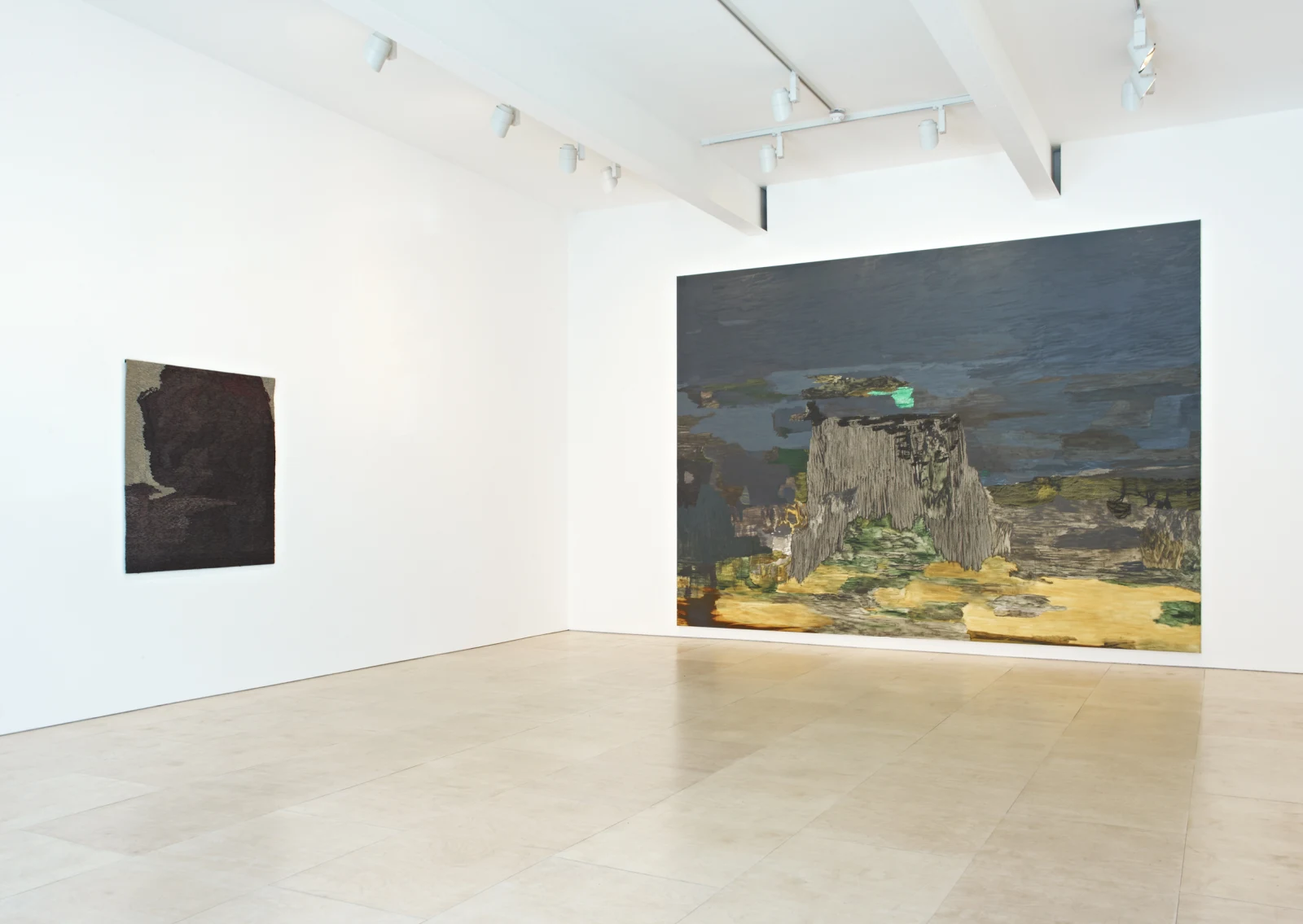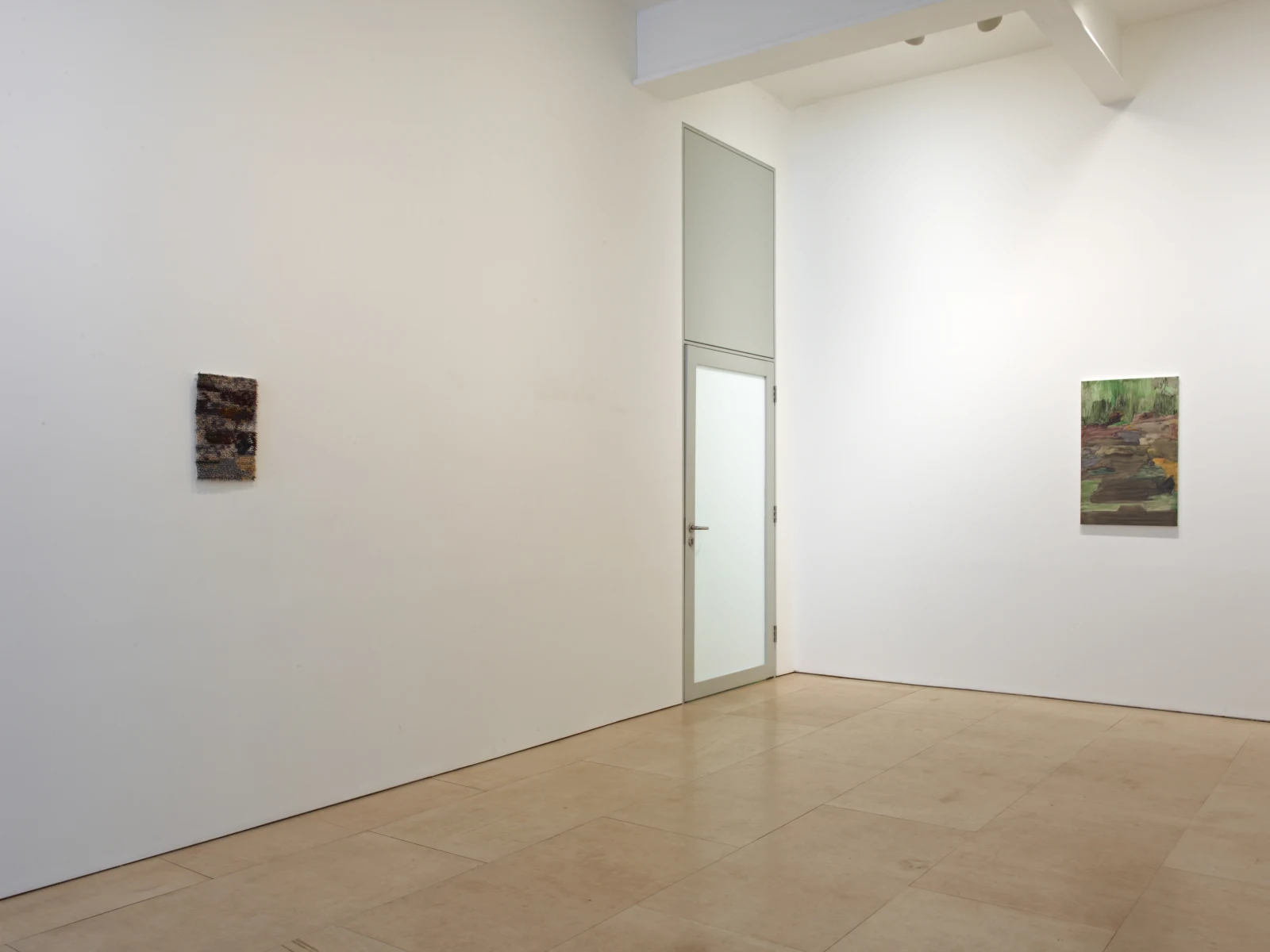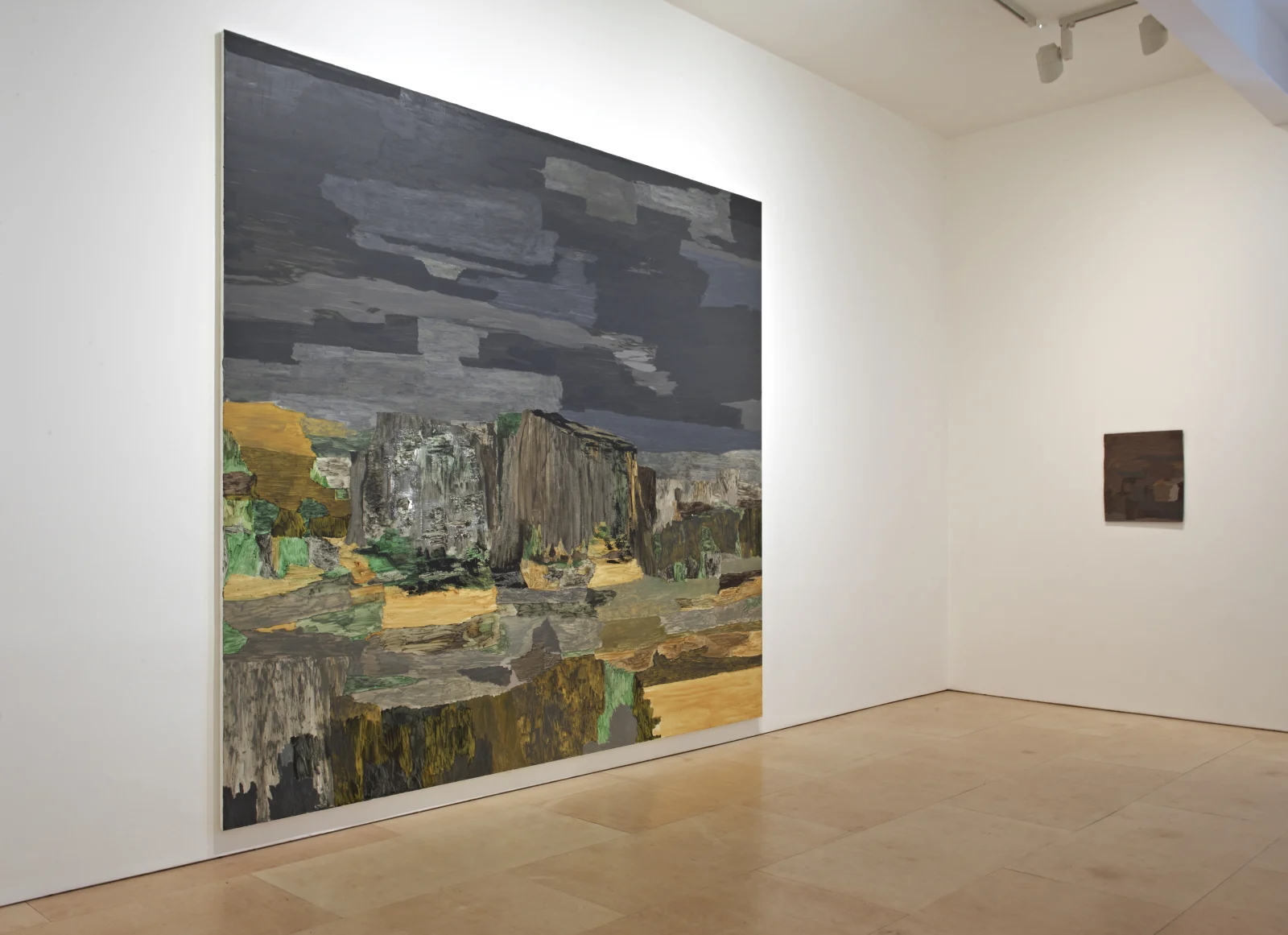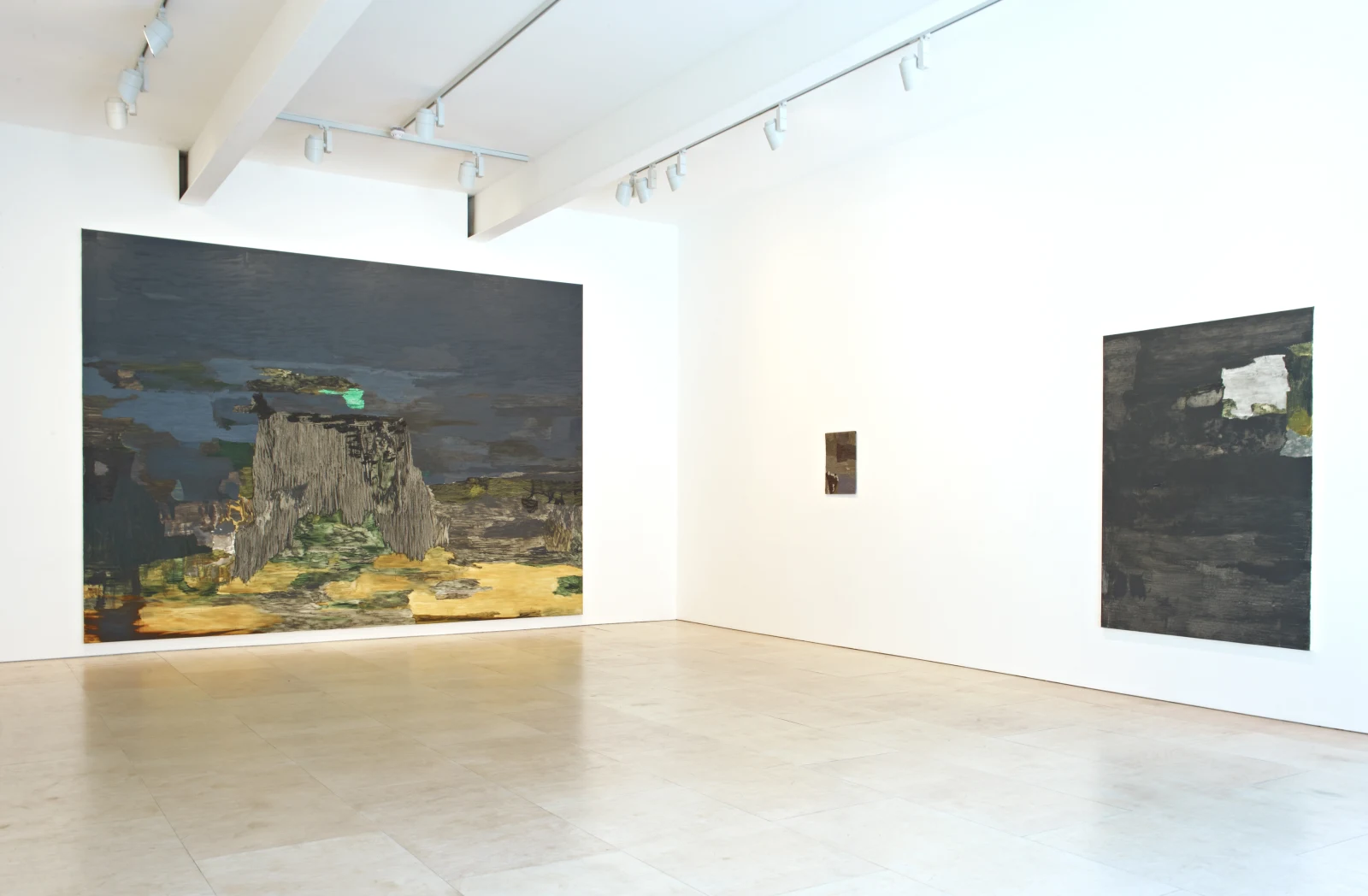
Andreas Eriksson: Coincidental Mapping
Overview
The exhibition ‘Coincidental Mapping’ provokes both the sensual and the conceptual, expanding a fleeting observation and an overlooked detail, whilst asking us to pause, consider and reflect.
Stephen Friedman Gallery is delighted to announce its first exhibition of work by Andreas Eriksson. Born in 1975, this is the Swedish artist’s first solo exhibition in the UK and follows his lauded presentation for the Nordic Pavilion at the 2011 Venice Biennale.
Eriksson's acutely atmospheric paintings, tapestries, sculptures and photographs relate to his daily life and the natural surroundings of his native Scandinavia. This body of work sits somewhere between abstraction and figuration, creating an enigmatic window to the outside world that feels at once familiar and mysterious.
Stephen Friedman Gallery is delighted to announce its first exhibition of work by Andreas Eriksson.
Born in 1975, this is the Swedish artist’s first solo exhibition in the UK and follows his lauded presentation for the Nordic Pavilion at the 2011 Venice Biennale.Eriksson's acutely atmospheric paintings, tapestries, sculptures and photographs relate to his daily life and the natural surroundings of his native Scandinavia. This body of work sits somewhere between abstraction and figuration, creating an enigmatic window to the outside world that feels at once familiar and mysterious.
Inspired by the Romantic Nordic tradition, Eriksson’s work also alludes to but remains separate from what historian Robert Rosenblum called the ‘Northern Romantic tradition’, a line that started with Caspar David Friedrich and extends to Wassily Kandinsky, Paul Klee and onto Barnett Newman and Mark Rothko. However, unlike these artists, Eriksson does not refer to his relationship to nature as religious yet his work conveys the same calm, atmospheric and harmonic qualities.
Eriksson’s output reflects a sense of the isolation of nature, a factor of Eriksson’s everyday life as his studio is located deep in Medelplana in the Swedish countryside. Eriksson uses these natural surroundings, as experienced on his daily walks, as the source for the work. He does not merely map this landscape but, experimenting with formalism and material, impresses on the viewer his visual and emotional experience of these everyday encounters.
The exhibition at Stephen Friedman Gallery will include a group of new painting, ranging from the intimate to the epic in scale. Eriksson’s paintings continue the exploration of his reactions to the perception and experience of the outside world. The gestural, textured forms, layering and distinct brushwork convey both his feelings and emotions when encountering nature, allowing the work to dwell between these real and imagined places. Complementing these paintings will be a group of new tapestries; densely packed woven landscapes rich in both texture and colour. The works appear both as patchwork landscapes seen from above and magnified details of organic form and texture; an intimate personal encounter with nature and expansive vista at the same time. These intricate tapestries rely on the dominance of vertical and horizontal lines in parallel and the reductive use of colour that is also a feature of his paintings.
The exhibition ‘Coincidental Mapping’ provokes both the sensual and the conceptual, expanding a fleeting observation and an overlooked detail, whilst asking us to pause, consider and reflect. The same properties that are important in the artist’s experience of nature remain integral to his work.
The exhibition ‘Coincidental Mapping’ provokes both the sensual and the conceptual, expanding a fleeting observation and an overlooked detail, whilst asking us to pause, consider and reflect.
